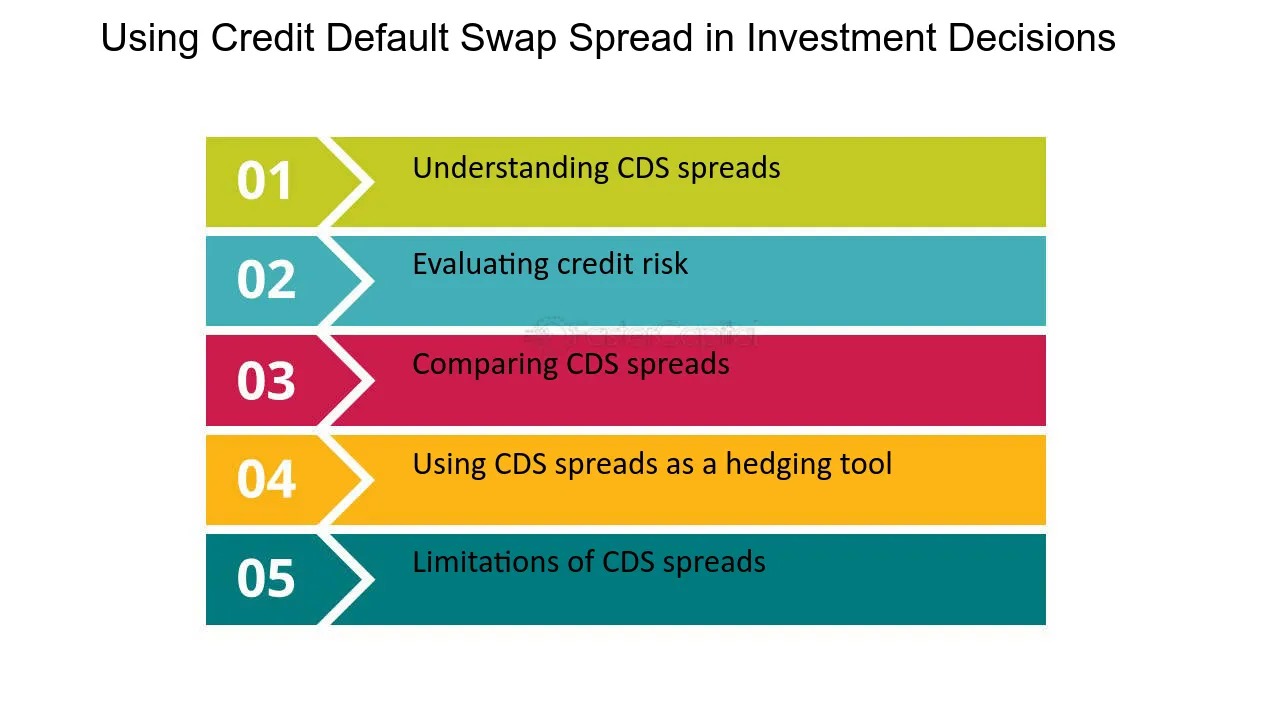

Finance
What Do Landlords Look For In Credit Checks
Published: January 12, 2024
Discover what landlords consider during credit checks. Understand the key factors they look for to make informed financial decisions.#[Finance]
(Many of the links in this article redirect to a specific reviewed product. Your purchase of these products through affiliate links helps to generate commission for LiveWell, at no extra cost. Learn more)
Table of Contents
- Introduction
- Importance of Credit Checks for Landlords
- Factors Landlords Consider in Credit Checks
- Credit Score and History
- Income and Employment Verification
- Rental History and Eviction Records
- Criminal Background Check
- Debt-to-Income Ratio
- Red Flags for Landlords
- How to Improve Your Credit for Rental Applications
- Conclusion
Introduction
When it comes to renting a property, landlords often conduct credit checks on prospective tenants. This is a crucial step in the application process as it provides landlords with valuable information about an applicant’s financial responsibility and ability to pay rent on time. Credit checks allow landlords to assess the risk of renting to a particular individual and make informed decisions.
A credit check involves reviewing an applicant’s credit score and credit history. It provides landlords with insights into an applicant’s past financial behavior, including their payment history, outstanding debts, and any derogatory remarks. Landlords use this information to determine if an applicant is financially stable and reliable when it comes to meeting their financial obligations, such as rent payments.
While credit checks are just one aspect of the tenant screening process, they carry significant weight in a landlord’s decision-making process. In this article, we will explore the importance of credit checks for landlords and the various factors they consider when conducting these checks.
By understanding what landlords look for in credit checks, prospective tenants can better prepare themselves for the application process and increase their chances of securing a desirable rental property.
Importance of Credit Checks for Landlords
Credit checks are an integral part of the tenant screening process for landlords. They provide valuable insights into an applicant’s financial history and help landlords assess the risk associated with renting to a particular individual. Here are a few reasons why credit checks are important for landlords:
- Assessing financial responsibility: Credit checks allow landlords to gauge an applicant’s financial responsibility and determine how likely they are to pay rent and other financial obligations on time. A good credit score and history reflect a tenant’s ability to manage their finances effectively.
- Mitigating financial risks: By reviewing an applicant’s credit report, landlords can identify any patterns of late payments, outstanding debts, or defaults, which can help them make informed decisions about the applicant’s ability to fulfill their rent obligations. This reduces the risk of potential financial losses.
- Ensuring stability: Landlords need tenants who will stay for the long term and maintain a stable rental payment record. A strong credit history indicates a higher likelihood that the applicant will be a reliable and stable tenant.
- Legal compliance: Conducting credit checks helps landlords comply with fair housing laws. By treating all applicants equally and assessing their financial qualifications based on objective criteria, landlords can avoid accusations of discrimination.
- Protecting other tenants and property: Knowing an applicant’s credit history can provide insight into their financial stability, reducing the risk of potential delinquency or non-payment. This helps protect other tenants and ensures the landlord’s property is well maintained and financially secure.
Overall, credit checks are essential for landlords to make informed decisions about potential tenants. They serve as an effective tool to assess an applicant’s financial responsibility, identify potential risks, and ultimately select tenants who are more likely to fulfill their rental obligations and maintain a positive relationship throughout the tenancy.
Factors Landlords Consider in Credit Checks
When conducting credit checks on prospective tenants, landlords consider various factors to assess their financial responsibility and determine their suitability as renters. Here are some key factors that landlords typically consider:
- Credit Score and History: A tenant’s credit score is an important indicator of their financial health. Landlords typically prefer applicants with good to excellent credit scores, as it demonstrates a history of responsible financial behavior. Additionally, landlords review an applicant’s credit history to look for any past delinquencies, collections, or bankruptcies that could raise concerns.
- Income and Employment Verification: Landlords want to ensure that tenants have a stable source of income to cover monthly rent payments. As part of the credit check, landlords often verify an applicant’s employment and income, either through pay stubs, employment letters, or bank statements. This helps landlords gauge the applicant’s ability to meet their financial obligations.
- Rental History and Eviction Records: Landlords may also check an applicant’s rental history to see if they have a track record of timely rent payments and positive landlord references. Additionally, landlords search for any eviction records, as tenants with past evictions may be considered high-risk applicants.
- Criminal Background Check: While not directly related to credit, landlords often conduct criminal background checks to ensure the safety and wellbeing of other tenants. This check helps identify any potential risks or criminal behavior that may affect the tenancy.
- Debt-to-Income Ratio: Landlords may assess an applicant’s debt-to-income ratio, which compares their monthly debt payments to their monthly income. This ratio helps landlords determine whether the applicant can comfortably afford the rent and still meet their other financial obligations.
These factors collectively provide landlords with valuable information about an applicant’s financial responsibility and ability to fulfill their rental obligations. By considering these factors during the credit check process, landlords can make well-informed decisions about potential tenants and maintain the financial stability and integrity of their rental properties.
Credit Score and History
One of the most significant factors that landlords consider in credit checks is an applicant’s credit score and credit history. A credit score is a numerical representation of an individual’s creditworthiness, ranging from 300 to 850, with a higher score indicating better creditworthiness.
Landlords typically have a minimum credit score requirement for prospective tenants, and it may vary depending on the rental market and the specific property. Generally, a credit score of 650 or above is considered good, while a score below 600 may raise concerns for landlords.
Landlords review an applicant’s credit history to gain insights into their past financial behavior and determine their likelihood of fulfilling their rent obligations. Some key elements of an applicant’s credit history that landlords consider include:
- Payment History: Landlords assess an applicant’s payment history to determine if they have a track record of making timely payments on credit cards, loans, and other financial obligations. Multiple late payments or a history of missed payments may be red flags for landlords.
- Outstanding Debts: Landlords are interested in an applicant’s outstanding debts, including credit card balances, personal loans, student loans, and other financial liabilities. High levels of debt relative to their income may suggest financial strain, making it harder for tenants to afford rent consistently.
- Derogatory Remarks: Any negative remarks on an applicant’s credit report, such as collections, bankruptcy filings, or tax liens, can significantly impact their creditworthiness and raise concerns for potential landlords.
- Length of Credit History: The length of an applicant’s credit history is also taken into consideration. A longer credit history with a demonstrated ability to manage credit responsibly often indicates financial stability and responsible financial behavior.
Landlords use credit scores and credit history as a metric to assess an applicant’s financial responsibility. While having an excellent credit score does not guarantee rental approval, it certainly improves the chances of securing the desired rental property.
It’s vital for tenants to regularly review their credit reports, address any inaccuracies or discrepancies, and work to improve their credit score if necessary. Maintaining a healthy credit score and a positive credit history not only helps tenants in their rental applications but also benefits them in many other financial aspects of life.
Income and Employment Verification
When conducting credit checks, landlords often verify an applicant’s income and employment to assess their ability to meet their financial obligations, including rent payments. This verification process helps landlords gauge the applicant’s financial stability and determine if they have a steady source of income to cover the monthly rent.
Landlords may request documents such as pay stubs, employment letters, or bank statements to verify an applicant’s income. These documents provide evidence of consistent earnings and help landlords ensure that the applicant has the financial means to afford the rent.
Here are a few key points that landlords consider during income and employment verification:
- Consistency of Income: Landlords prefer applicants with a stable and regular income flow. They look for a consistent employment history and evidence of steady income. Applicants with multiple job changes within a short period or irregular income patterns may raise concerns for landlords.
- Adequacy of Income: Landlords assess whether the applicant’s income is sufficient to cover the rent, as well as other financial obligations. Generally, landlords consider an applicant’s monthly income to be adequate if it is 2.5 to 3 times the monthly rent amount. This ensures that the applicant has enough discretionary income to handle other expenses.
- Verification of Employment: Landlords may contact the applicant’s employer to verify their employment status, job position, and length of employment. This helps validate the information provided by the applicant and ensures that the employment details are accurate.
- Self-Employed Applicants: For self-employed applicants, landlords may require additional documentation, such as tax returns or business bank statements, to verify their income and assess their financial stability. This helps determine the consistency and reliability of their self-employment income.
Verifying income and employment allows landlords to determine if an applicant has the financial capacity to consistently pay rent. It also helps landlords maintain the financial stability of their rental property by selecting tenants who can afford the rent without facing financial difficulties.
It is crucial for tenants to be prepared to provide the necessary documentation during the application process to expedite the income and employment verification process. By demonstrating a stable income and employment history, tenants can increase their chances of securing their desired rental property.
Rental History and Eviction Records
When landlords conduct credit checks on potential tenants, they often pay close attention to the applicant’s rental history and check for any eviction records. This information provides valuable insights into the applicant’s past behavior as a tenant and helps landlords assess their reliability and suitability.
Here are some important factors that landlords consider when reviewing an applicant’s rental history:
- Timely Rent Payments: Landlords look for evidence of consistent and timely rent payments in the applicant’s rental history. They want tenants who have a track record of meeting their rent obligations on time, as this demonstrates financial responsibility and reliability.
- Length of Tenancy: Landlords consider the length of an applicant’s previous tenancies. Long-term tenancies indicate stability and a positive rental experience, while frequent moves or shorter tenancies may raise concerns about the applicant’s commitment or potential issues with following lease terms.
- Landlord References: Positive references from previous landlords can significantly increase the applicant’s credibility and trustworthiness. Landlords may reach out to previous landlords to inquire about the applicant’s behavior as a tenant, including their adherence to lease agreements, maintenance of the property, and overall reliability.
- Eviction Records: Landlords also check for any eviction records in the applicant’s rental history. Eviction records can indicate problematic behavior, such as non-payment of rent, property damage, or lease violations. Applicants with prior evictions may be viewed as higher risk and may face challenges in securing a rental property.
Landlords understand that everyone’s circumstances are unique, and a negative mark on a rental history may not always be a deal-breaker. However, a pattern of problematic rental history or multiple evictions can be a deterrent for landlords, as it raises concerns about the tenant’s ability to fulfill their rental obligations and maintain a positive tenancy.
Tenants with a positive rental history and strong landlord references have a better chance of being approved by landlords. It is important for tenants to maintain a good relationship with previous landlords, fulfill their lease obligations, and address any issues that may arise during their tenancy to ensure a favorable rental history.
Criminal Background Check
As part of the tenant screening process, landlords often conduct a criminal background check on potential tenants. This check helps landlords ensure the safety and well-being of their rental property and existing tenants. While credit and rental history provide insights into a tenant’s financial responsibility, a criminal background check provides information about their potential risk as a tenant.
Here are a few key points to understand about criminal background checks:
- Ensuring Safety: Landlords have a responsibility to provide a safe living environment for their tenants. By conducting a criminal background check, they can identify any potential risks or criminal behavior that may pose a threat to other tenants or the property.
- Types of Criminal Offenses: Landlords typically look for convictions related to violent crimes, drug offenses, fraud, or other felonies that could impact the safety and well-being of the community. However, the specific offenses that landlords consider can vary depending on local laws and regulations.
- Compliance with Fair Housing Laws: It is important to note that landlord’s criminal background checks must comply with fair housing laws to avoid any accusations of discrimination. Landlords should establish clear criteria regarding the types of criminal offenses that would disqualify an applicant and apply them consistently to all applicants.
- Individual Assessment: While a criminal background check may reveal a conviction, it does not always indicate an ongoing threat or guarantee that an applicant will engage in criminal activity during their tenancy. Landlords should consider individual circumstances, such as the nature and severity of the offense, the length of time since the conviction, and any evidence of rehabilitation, before making a final decision.
A criminal background check provides landlords with valuable information that helps them make informed decisions about potential tenants. By conducting these checks, landlords can ensure the safety and well-being of their rental property, existing tenants, and the surrounding community.
It’s important for tenants to be aware that a criminal history may impact their rental applications. To increase their chances of success, tenants with prior convictions should be transparent about their history, highlight any rehabilitation efforts, and provide character references to demonstrate their ability to be responsible and law-abiding tenants.
Debt-to-Income Ratio
Another important factor that landlords consider during the tenant screening process is the debt-to-income ratio of potential tenants. The debt-to-income ratio is a financial metric that compares an individual’s monthly debt payments to their monthly income. It helps landlords assess the applicant’s ability to manage their financial obligations, including rent payments, while still meeting other financial commitments.
Here are a few key points to understand about the debt-to-income ratio:
- Calculating the Ratio: To calculate the debt-to-income ratio, landlords divide the total monthly debt obligations (such as credit card payments, auto loans, student loans, and other debts) by the applicant’s gross monthly income. The resulting percentage indicates the portion of their income that goes towards debt repayment.
- Adequate Ratio: Landlords generally consider a debt-to-income ratio of 30-40% to be within an acceptable range. This means that the applicant’s total monthly debt payments should not exceed 30-40% of their gross monthly income. A lower ratio is considered more favorable, as it indicates that the applicant has more disposable income to cover rent and other expenses.
- Financial Stability: Landlords review the debt-to-income ratio to assess the applicant’s financial stability. A high debt-to-income ratio may indicate that the applicant is financially overextended and may struggle to afford the monthly rent payment on top of their existing debts. Landlords may view this as a potential risk for late or missed rent payments.
- Flexibility: Landlords understand that every individual’s financial situation is unique. While a high debt-to-income ratio may raise concerns, landlords may also consider factors such as the overall income level, employment stability, and other financial strengths when evaluating an applicant’s ability to manage their debts and afford the rent.
A favorable debt-to-income ratio demonstrates to landlords that the applicant has a manageable level of debt in relation to their income. This suggests a higher likelihood of consistent rent payments and financial responsibility throughout the tenancy.
Tenants can improve their debt-to-income ratio by paying down debts, increasing their income, or a combination of both. This can be achieved through budgeting, reducing unnecessary expenses, and finding ways to increase their income, such as taking on additional work or seeking promotions.
By maintaining a healthy debt-to-income ratio, tenants can present themselves as financially responsible individuals and increase their chances of being approved for their desired rental property.
Red Flags for Landlords
During the tenant screening process, landlords look out for certain red flags that may raise concerns and indicate potential risks. These red flags can help landlords make informed decisions and protect their rental property. Here are some common red flags that landlords should be aware of:
- Unsatisfactory Credit History: A poor credit history, including a low credit score, late payments, or accounts in collections, can be a red flag for landlords. It may indicate a lack of financial responsibility or an inability to meet financial obligations, which could extend to rent payments.
- Insufficient Income: If an applicant’s income is insufficient to cover the rent, it raises concerns about their ability to make timely rent payments. Landlords typically have guidelines or requirements for the minimum income level to ensure that tenants can comfortably afford the rent without financial strain.
- History of Evictions: A history of evictions is a significant red flag for landlords. It suggests a pattern of rental delinquency or non-compliance with lease agreements, which raises concerns about the applicant’s reliability and ability to fulfill their obligations as a tenant.
- Criminal Convictions: Certain criminal convictions can be red flags for landlords, particularly if they pose a risk to the safety and well-being of other tenants or the property. Serious offenses such as violent crimes, drug-related crimes, or property damage can raise concerns about the applicant’s potential behavior as a tenant.
- Inconsistent Employment History: Frequent job changes or gaps in employment history may indicate instability or a lack of consistent income, making it difficult for tenants to meet their financial obligations. Landlords prefer applicants with a stable employment history to ensure a reliable source of income for rent payments.
- Negative Landlord References: Negative references from previous landlords, such as reports of disruptive behavior, failure to pay rent on time, or property damage, are red flags for landlords. These references may indicate potential issues with the applicant as a tenant and raise concerns about their ability to maintain a positive tenancy.
While each red flag should be carefully considered in the context of the applicant’s overall profile, an accumulation of red flags may lead landlords to exercise caution and potentially reject the rental application. However, it’s important to comply with fair housing laws and avoid discriminatory practices when evaluating applicants.
Landlords should establish clear criteria and guidelines for tenant screening and apply them consistently to all applicants. This helps ensure fairness and transparency throughout the selection process.
By being aware of these red flags, landlords can reduce the risk of problematic tenants and make informed decisions when selecting reliable and responsible individuals to occupy their rental properties.
How to Improve Your Credit for Rental Applications
If you are concerned about your credit and want to improve it to increase your chances of success in rental applications, there are several steps you can take. Here are some strategies to help improve your credit:
- Check Your Credit Report: Start by obtaining a free copy of your credit report from each of the major credit bureaus (Equifax, Experian, and TransUnion). Carefully review the report for any errors or discrepancies that may be negatively impacting your credit score. If you find any inaccuracies, dispute them with the credit bureau to have them corrected.
- Pay Bills on Time: Consistently paying your bills on time is crucial for improving your credit. Late payments can have a significant negative impact on your credit score. Set up reminders or automatic payments to ensure you never miss a payment deadline.
- Reduce Credit Card Balances: Aim to pay down your credit card balances as much as possible. High credit card balances can negatively affect your credit utilization ratio, which compares your outstanding credit card balances to your credit limit. Lowering your utilization ratio demonstrates responsible credit management and can boost your credit score.
- Avoid Opening New Credit Accounts: While it’s important to have a mix of credit types, opening new credit accounts in a short period can potentially lower your credit score. Avoid applying for unnecessary credit, especially when you’re actively seeking a rental property.
- Manage Debts: As you work on improving your credit, make sure to manage your existing debts responsibly. Create a budget to prioritize debt repayment and allocate funds towards paying off outstanding balances. Making regular payments and reducing your debt will positively impact your credit score over time.
- Establish a Positive Credit History: If you have limited or no credit history, consider opening a secured credit card or becoming an authorized user on someone else’s credit card account. This can help you establish a positive credit history if managed responsibly.
- Seek Professional Advice: If you are struggling with your credit or need guidance on improving it, consider seeking advice from a certified credit counselor. They can provide personalized strategies and help you develop a plan to work towards better credit.
Improving your credit takes time and effort, but the benefits are long-lasting. By proactively managing your credit and making responsible financial decisions, you can enhance your creditworthiness and increase your chances of success in rental applications.
Remember, it’s essential to be patient and consistent in your credit improvement efforts. Stay focused on your long-term goals of achieving a healthier credit profile, and it will pay off in various aspects of your financial life, including rental applications.
Conclusion
Conducting credit checks is an essential step for landlords when screening potential tenants. By reviewing an applicant’s credit score, credit history, income, rental history, and other factors, landlords can make informed decisions about an applicant’s financial responsibility and suitability as a tenant.
For tenants, understanding what landlords look for in credit checks is crucial to improve their chances of securing their desired rental property. Maintaining a good credit score, demonstrating a stable income, having a positive rental history, and avoiding red flags can significantly enhance rental applications.
To improve credit for rental applications, tenants can take proactive steps such as checking their credit reports for errors, paying bills on time, reducing credit card balances, managing debts responsibly, and seeking professional advice if needed. These efforts not only increase the likelihood of rental approval but also contribute to overall financial well-being.
It’s important to note that while credit checks play a significant role in the tenant screening process, they are just one piece of the puzzle. Landlords also consider other factors such as employment verification, rental references, and criminal background checks to make comprehensive assessments of applicants.
By understanding the importance of credit checks and the factors that landlords consider, tenants can better prepare themselves for the rental application process. Demonstrating financial responsibility, stability, and a positive rental history will not only increase the chances of securing a desirable rental property but also foster a positive relationship with landlords throughout the tenancy.
In conclusion, tenants should strive to maintain a good credit score, manage their debts responsibly, and provide accurate and verifiable information during the application process. By doing so, tenants can position themselves as trusted and reliable candidates in the eyes of landlords, increasing their chances of securing their dream rental property.














